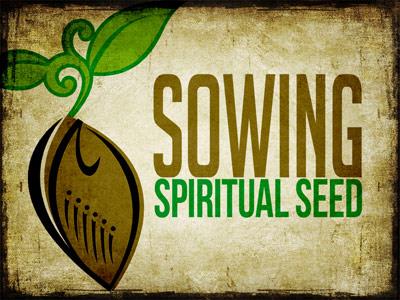-
Feeling Small, Walking Tall Series
Contributed by Boomer Phillips on Mar 25, 2022 (message contributor)
Summary: Small congregations might feel ineffective at reaching people, but big things come in small packages. Both the parable of "the mustard seed" and "the yeast" show how small, seemingly insignificant things can make a huge impact.
The passage of Scripture that we will view tonight contains two short parables – “The Mustard Seed” and “The Yeast.” I have entitled our sermon “Feeling Small, Walking Tall,” and the passage that we’ll be studying provides a great opportunity for sharing a motivational message.
You are probably wondering, “Why does the pastor feel that we need some encouragement?” The reason why is because there is a huge misconception about the church floating around today; one which says that the traditional church, and even small congregations, are ineffective at reaching people in our rapidly changing culture. If you are someone here tonight who holds this misconception, or fears that perhaps it might be true, then the words of Jesus should convince you otherwise.
A short definition of a traditional church, according to Thom Rainer, is one that is older than ten years. It makes use of Sunday school as its primary small group Bible teaching ministry. It has Sunday morning, Sunday evening, and Wednesday evening services; and it shows a greater resistance to change than younger churches do.(1) Based on this information, I think we can easily say that our church is traditional.
Skeptics are saying the traditional church can’t reach the world for Christ effectively anymore, but is this really true? Thom Rainer did a survey of nearly two hundred churches of various sizes, denominations, worship styles, and ministry approaches; and here is his conclusion in his own words: “There was virtually no correlation between the growth and outreach of the church and the type of church – traditional or nontraditional.”(2)
Did you hear what he said about growth? There isn’t much difference between traditional and nontraditional churches; and this observation could also be applied to small and large churches. Growth is about the same proportionately. If you are feeling too small to be effective for the kingdom, then hopefully this evening, the words of Jesus Christ will have you convinced that you can begin walking in confidence, knowing that you are useful to the Lord.
Feeling Small (vv. 31-32)
31 Another parable He put forth to them, saying: “The kingdom of heaven is like a mustard seed, which a man took and sowed in his field, 32 which indeed is the least of all the seeds; but when it is grown it is greater than the herbs and becomes a tree, so that the birds of the air come and nest in its branches.”
We have here “The Parable of the Mustard Seed.” The mustard seed appears to be tiny and insignificant, but “God transforms a tiny speck of mustard seed into a six-to-ten-foot-high shrub.”(3) David Garland says, “Even modern scientific knowledge of the DNA structure of the mustard seed does not dispel the mystery of its growth . . . One could dismiss the microscopic seed as something inconsequential, but it has a power within itself to [grow] into something that one cannot ignore.”(4)
I have never seen a mustard seed before, but growing up on a tobacco farm I observed something that I imagine is quite similar. My dad used to take two small packets of tobacco seeds, containing perhaps two or three teaspoons in each one, and he would empty the contents into a bucket half-full of fertilizer. He would then mix the fertilizer and seed by hand, and then broadcast the mixture across his tobacco bed. Within a few short weeks, these small seeds no bigger than a pinhead, would completely fill an area of ground about one hundred feet long and six feet wide. These plants would later grow to about seven feet in height.
What meaning does this parable have for both small and traditional churches? In reference to this particular parable, Henry Blackaby asks the following questions: “Do you feel like you are not strong enough or influential enough? . . . Does your church feel like it is too small to do much?”(5) If we feel like we are too small or not strong enough as a congregation, then listen closely as I share some good reasons why both small and traditional churches can be effective:
The first reason why both small and traditional churches can be effective is because many of them are located in small towns. In the book Faithquakes, Leonard Sweet says, “People are moving to small towns because of atmosphere, lower taxes, smaller more responsive and safer school districts, and so on.”(6) The thing we need to understand is that there are actually people coming to us; and therefore, our church field is becoming more diverse, providing more people resources from which to draw. As you well know, our church is located in a resort community, and you see new people moving here all the time from some other city or state.
The second reason why both small and traditional churches can be effective is because, according to Leonard Sweet, “The smallest ripple can make the biggest waves in postmodern culture.”(7) Let’s look at the business world. John Naisbitt tells us, “Small companies, right down to the individual, can beat big bureaucratic companies ten out of ten times. Therefore, unless the big companies reconstitute themselves as a collection of small companies they will just continue to go out of business.”(8)

 Sermon Central
Sermon Central



